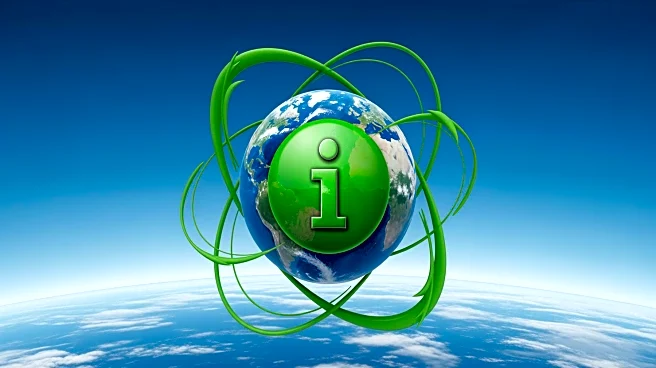What's Happening?
The 30th Conference of the Parties to the United Nations Framework Convention on Climate Change (COP30) commenced in Brazil, focusing on global climate change mitigation, financing, and adaptation strategies.
President Luiz Inacio Lula da Silva highlighted the challenge posed by disinformation, which is increasingly prevalent as extremist forces spread climate lies. The conference aims to establish a roadmap to end deforestation and fossil fuel dependency, while misinformation continues to undermine scientific consensus. Reports indicate a significant increase in disinformation related to COP30, with misleading content mimicking scientific data to cast doubt on climate change realities.
Why It's Important?
The surge in disinformation at COP30 poses a significant threat to global climate action efforts. Misinformation can undermine public support for necessary environmental policies and hinder progress in combating climate change. The spread of false information benefits fossil fuel interests and complicates the work of climate scientists and policymakers. Addressing this issue is crucial for maintaining momentum towards achieving the goals of the Paris Agreement and ensuring that accurate information guides public opinion and policy decisions. The U.S. delegation, including governors and mayors, is committed to reinforcing climate goals and combating misinformation.
What's Next?
The U.S. delegation at COP30, led by prominent state and city officials, will focus on sharing local climate solutions and reinforcing commitments to the Paris Agreement. They face the challenge of countering disinformation by effectively communicating the realities of climate change and the importance of global cooperation. The Cúpula dos Povos Boat Parade, arriving at COP30, symbolizes resistance against corporate exploitation and highlights community-led environmental protection efforts. Participants aim to showcase sustainable solutions and advocate for the protection of the Amazon and Indigenous lands.
Beyond the Headlines
The disinformation challenge at COP30 highlights broader issues of media manipulation and the role of digital platforms in spreading false narratives. This situation underscores the need for robust strategies to counter misinformation and promote scientific literacy. The ethical implications of disinformation are significant, as they affect public trust in science and hinder efforts to address urgent environmental challenges. Long-term solutions require collaboration between governments, tech companies, and civil society to ensure accurate information dissemination and support for climate action.










